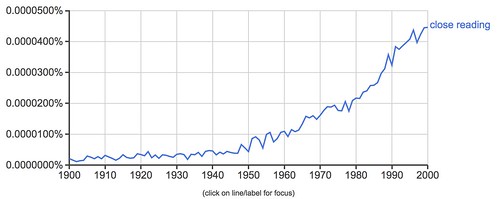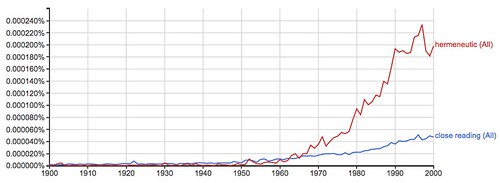In various posts I've pointed out that interpretation didn't become central to academic literary study until after World War II. We can see that in the following Google Ngram chart on the phrase "close reading", which is the term of art for interpretation:
This comparison with "hermeneutic" is instructive:
They rise at roughly the same time, but the more technical "hermeneutic" quickly out paces "close reading". Why? Is this evidence for "physics envy" leading to the intellectually useless proliferation of technical jargon? Well, if you believe that literary criticism has no need of a theoretical infrastructure, then, sure, why not?
But I don't believe that. I may not like the theoretical instruction literary criticism has created for itself, but that doesn't mean I think it is best done without such an infrastructure. And the steep rise of "hermeneutic" seems to reflect the general rise of a theoretical infrastucture. Without any particular evidence at hand, the term strikes me as being more useful in general theoretical discussion. Close reading is something a critic does; hermeneutics is something critics talk about.


No comments:
Post a Comment